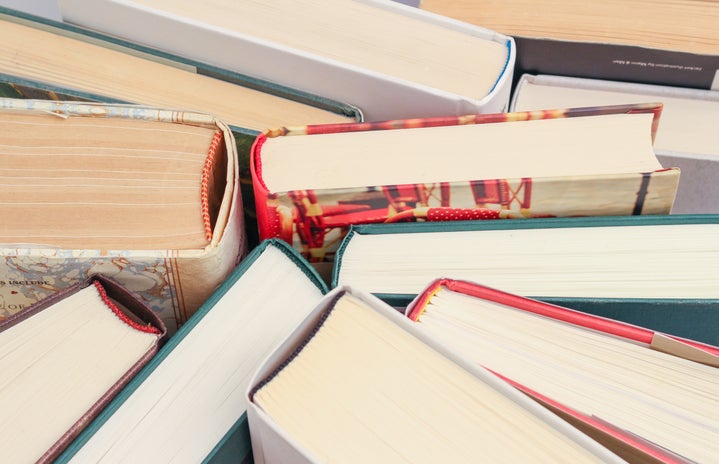There’s something incredibly satisfying about a brand-new notebook, especially one with a really interesting cover, incredible bindings, ribbon bookmarks and maybe even a fancy clasp. Notebooks come in so many cool styles and aesthetics that sometimes their purchase is irresistible. If you’re like me and spend way too much time in the notebook section of bookstores, you’ve probably ended up with more than a few extra empty ones on your shelf. Due to my ever-growing collection of pretty spines and smooth lined paper, I’ve decided to come up with some ideas for what to use them for. So, without further ado, here are some interesting ways you can fill up your empty notebooks!
1. Daily journal/diary
One of the most common uses for a good notebook is journaling. Journaling is a great way to reflect on your day or keep some records of life events and how you feel about them. It can be quite relaxing and usually only takes a few minutes from your day to write. If you don’t feel up to writing a typical “diary,” don’t worry, journaling can really be any personal, customized experience. Since there are really no rules, you can express yourself however you want, whether it be full sentences, dot-jots or maybe even poems or pictures. Personally, I write in my journal every day before bed in the form of dot-jots, and I find it also serves as a great record in case I want to remember when something happened!
Nightly journaling can also be very calming because it lets you write down any pressing thoughts and leave them alone until the morning. Many people find that writing their thoughts in a journal avoids lying awake and thinking. It’s a great way to get any feelings, worries or information down on paper, or to write down details you might not remember when you wake up!
One of our Her Campus WLU writers wrote a great article on journaling a few weeks ago, so if you’re interested in starting, I encourage you to read some of her tips!
2. Dream journal
A dream journal works similarly to a daily journal in that you’ll be reflecting on your recent experiences, however, true to its name, a dream journal is specifically meant for you to write down your dreams! Dreams can be really interesting no matter the subject matter, and while we may want to spend hours re-living or thinking about them, our memories of our dreams like to fade away after just minutes. Dream journaling is a way to preserve and remember your dreams once you wake up.
Once you’ve started writing down your dreams, you’ll be able to remember them much easier in the morning since you’re training your brain to remember. Dream journaling is often advised as the first step to lucid dreaming, as well; a term that refers to an awareness that you’re dreaming. Some people even end up developing an ability to control their dreams. A dream journal can also make it easier to analyze your dreams and look for any interesting patterns your subconscious is bringing up. Just like regular journaling, a dream journal is a great way to keep a record of your thoughts and your crazy dream-world experiences.
3. Planner
Another great use for an empty notebook is a planner. Instead of buying a whole new planner, you can really use any old notebook to write down upcoming events, to-do lists and schedules. Some notebooks are made especially for bullet journaling, a way to make your own custom planner out of some dotted paper and pens. I find notebooks with thicker pages and ribbon bookmarks work best for this, since the thicker pages will let you colour-code your plans without bleeding through the paper, and the bookmark will make sure you’re always looking at the right date.
4. Creative writing notebook (Idea notebook)
A creative writing notebook is great for people with lots of ideas that they want to save for later. Usually, these notebooks are on the smaller side, carried around by journalists, authors, poets or songwriters to record their spur-of-the-moment thoughts, but anyone can make great use out of an idea notebook. I didn’t actually start keeping one of these until recently, but now that I do, it’s one of my favourite items. I use my idea book for a lot of things that I want to write down that wouldn’t fit in my journal. These range from new words I’ve learned, to stories I’ve thought of writing, to writing prompts, to impromptu poems and even my Her Campus article ideas. It’s a great place to collect cool ideas to look at later or get a rough draft down on paper.
A more fiction-writer version of this notebook could be to dedicate the whole thing to just one story idea or plot. Rather than writing just a summary of the idea or taking up multiple pages of your regular idea journal, this notebook would only be used for ideas pertaining to one specific story. This lets you fully flesh out any ideas you have before writing your draft. Notebooks like this are especially great for fantasy writing, where you can spend multiple pages developing settings, themes, plots and subplots, characters, countries, politics and anything else you need to plan. Once you’ve done the pre-writing portion, this notebook also lets you plan out what you’re going to write before you brave the empty document. Besides, it’s fun to have a themed notebook for each of your creative projects!
5. Other notes
This section is titled a little plainly, but it’s to encompass notes that aren’t necessarily for school or work; it’s for all the other things you still need to take notes on.
If you care for a lot of houseplants, you could keep an organized notebook of their individual needs and watering/fertilizing schedules. Plants are finicky creatures, so a tracker is always nice for them.
Maybe you play a lot of games that require strategy and want to have a notebook dedicated to any notes you need to take for them. Mystery games like Among Us, strategy/information-heavy games like Dungeons & Dragons or even simulation games like Stardew Valley can all benefit from note-taking whether it’s to remember who’s suspicious, what the tavern-keeper told you last session, or when your autumn crops are going to grow.
Maybe you’re learning a language from Duolingo or a new skill from Skillshare. Handwriting is a proven way to remember things better, so it could be beneficial to take some notes from those lessons and keep them in an organized place.
6. Memory notebook
This notebook will function somewhat like a scrapbook of sorts because this is a notebook dedicated to any memories, quotes or images that you like. This notebook is a place for you to collect any little thing that you want to remember. Use it to write down song lyrics that stick with you, print images that inspire you, inspirational quotes you’ve heard, dumb things your friends have said or interesting words and definitions you’ve learned. Anything goes!
7. Practice Lettering
This last notebook idea is a place to improve the way you write. You can use this notebook to practice neater handwriting or even practice a new style or font you want to write with. This notebook could also be used to practice writing with your non-dominant hand or to practice writing calligraphy or other fancy writing. Basically, it’s a place to practice your printing so when it comes to designing a poster or writing study notes, your notes look nice and neat! Plus, the rest of your notebooks will have nicer handwriting in them as a result of this practice.
Now that I’ve shared this list, I hope everyone has some new ideas for how to fill their notebook collection and something to look forward to the next time you see a really cool notebook at Indigo. Thank you for reading this article, and I wish you all some happy writing!



